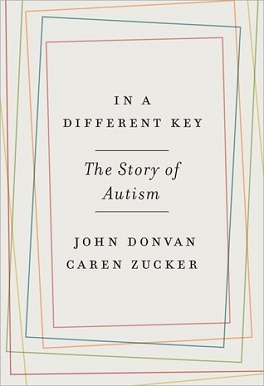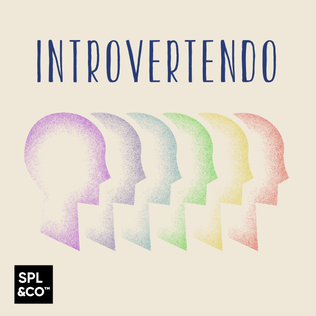
Diagnoses of autism have become more frequent since the 1980s, which has led to various controversies about both the cause of autism and the nature of the diagnoses themselves. Whether autism has mainly a genetic or developmental cause, and the degree of coincidence between autism and intellectual disability, are all matters of current scientific controversy as well as inquiry. There is also more sociopolitical debate as to whether autism should be considered a disability on its own.

Neurodiversity is a framework for understanding human brain function and mental illness. It argues that diversity in human cognition is normal and that some conditions classified as mental disorders are differences and disabilities that are not necessarily pathological.

The autism rights movement, also known as the autistic acceptance movement, is a social movement allied with disability rights that emphasizes a neurodiversity paradigm, viewing autism as a disability with variations in the human brain rather than as a disease to be cured. The movement advocates for several goals, including greater acceptance of autistic traits and behaviors; reforms of services - i.e. services that focus on improving quality of life and well-being instead of suppression and masking of autistic traits that are adaptive or not harmful or imitations of social behaviors of neurotypical (non-autistic) peers ; the creation of social networks and events that allow autistic people to socialize on their own terms; and the recognition of the autistic community as a minority group.

Autistic Pride Day is a pride celebration for autistic people held on 18 June each year. Autistic pride recognises the importance of pride for autistic people and its role in bringing about positive changes in the broader society.
The following outline is provided as an overview of and topical guide to autism:
Self-advocacy is the act of speaking up for oneself and one's interests. It is used as a name for civil rights movements and mutual aid networks for people with intellectual and developmental disabilities. The term arose in the broader civil rights movements of the 1960s and 1970s, and is part of the disability rights movement. Today there are self-advocacy organizations across the world.

Manuel F. Casanova is the SmartState Endowed Chair in Childhood Neurotherapeutics and a professor of Biomedical Sciences at the University of South Carolina School of Medicine Greenville. He is a former Gottfried and Gisela Kolb Endowed Chair in Outpatient Psychiatry and a Professor of Anatomical Sciences and Neurobiology at the University of Louisville.

Amelia Evelyn Voicy Baggs, also known as Mel Baggs, was an American non-binary blogger who predominantly wrote on the subject of autism and disability. At times, Baggs used a communication device to speak and referred to themself as a low-functioning autistic. Revelations about Baggs's past created some uncertainty about their diagnosis.

Societal and cultural aspects of autism or sociology of autism come into play with recognition of autism, approaches to its support services and therapies, and how autism affects the definition of personhood. The autistic community is divided primarily into two camps; the autism rights movement and the Pathology paradigm. The pathology paradigm advocates for supporting research into therapies, treatments, and/or a cure to help minimize or remove autistic traits, seeing treatment as vital to help individuals with autism, while the neurodiversity movement believes autism should be seen as a different way of being and advocates against a cure and interventions that focus on normalization, seeing it as trying to exterminate autistic people and their individuality. Both are controversial in autism communities and advocacy which has led to significant infighting between these two camps. While the dominant paradigm is the pathology paradigm and is followed largely by autism research and scientific communities, the neurodiversity movement is highly popular among most autistic people, within autism advocacy, autism rights organizations, and related neurodiversity approaches have been rapidly growing and applied in the autism research field in the last few years.
The Autistic Self Advocacy Network (ASAN) is an American 501(c)(3) nonprofit advocacy organization run by and for individuals on the autism spectrum. ASAN advocates for the inclusion of autistic people in decisions that affect them, including: legislation, depiction in the media, and disability services.

Autism, formally called autism spectrum disorder (ASD) or autism spectrum condition (ASC), is a neurodevelopmental disorder marked by deficits in reciprocal social communication and the presence of restricted and repetitive patterns of behavior. Other common signs include difficulties with social interaction, verbal and nonverbal communication, along with perseverative interests, stereotypic body movements, rigid routines, and hyper- or hyporeactivity to sensory input. Autism is clinically regarded as a spectrum disorder, meaning that it can manifest very differently in each person. For example, some are nonspeaking, while others have proficient spoken language. Because of this, there is wide variation in the support needs of people across the autism spectrum.
Autism spectrum disorders (ASDs) or autism spectrum conditions (ASCs) describe a range of conditions classified as neurodevelopmental disorders in the DSM-5, used by the American Psychiatric Association. As with many neurodivergent people and conditions, the popular image of autistic people and autism itself is often based on inaccurate media representations. Additionally, media about autism may promote pseudoscience such as vaccine denial or facilitated communication.
Kathleen Seidel is an American researcher and weblog publisher from Peterborough, New Hampshire, best known for investigations and writing on autism. Her inquiries into the work and conduct of Mark Geier and his son David Geier regarding chelation therapy and a hormone-altering drug called Lupron, led to medical board actions in multiple states that suspended Mark Geier from medical practice, and caused David Geier to be arraigned for allegedly practising medicine without a license.
The history of autism spans over a century; autism has been subject to varying treatments, being pathologized or being viewed as a beneficial part of human neurodiversity. The understanding of autism has been shaped by cultural, scientific, and societal factors, and its perception and treatment change over time as scientific understanding of autism develops.

In a Different Key: The Story of Autism is a 2016 non-fiction book by John Donvan and Caren Zucker. It discusses the history of autism and autism advocacy, including issues such as the Refrigerator mother theory and the possibility of an autism epidemic. Donald Triplett, perhaps the first person diagnosed with autism, and psychiatrist Leo Kanner are also covered, as is the ongoing debate concerning the neurodiversity movement, especially with respect to autistic people with more apparent support needs.

Loving Lampposts is a 2010 documentary film directed by Todd Drezner, exploring the neurodiversity movement and the principle of autism acceptance through a series of interviews and candid footage. Drezner is the father of an autistic child whose attachment to and fascination with lampposts gave the film its title.
Morénike Giwa Onaiwu is an American educator, author, and autism and HIV advocate. Alongside E. Ashkenazy and Lydia Brown, Onaiwu is an editor of All the Weight of Our Dreams, an anthology of art and writing entirely by autistic people of color published by the Autism Women's Network in June 2017.

Introvertendo, occasionally credited as Introvertendo - Autismo por Autistas, was a Brazilian podcast made between 2018 and 2023. With content about autism, it gained notoriety for being the first podcast made by autistic people in Brazil.
Nick Walker is an American scholar and writer, known for coining the term neuroqueer, as well as her contributions to the neurodiversity paradigm. Her research focuses on the intersections of somatic psychology, transpersonal psychology, queer theory, neurodiversity, and creativity. She is an associate professor at the California Institute of Integral Studies (CIIS).
Kassiane A. Asasumasu is a Hapa Asian autism rights activist who is credited for coining several terms related to the Neurodiversity Movement, including caregiver benevolence (2014), neurodivergent, and neurodivergence (2000). As stated in the text Neurodiversity for Dummies, "Asasumasu's work set the stage for a broader understanding and acceptance of neurological differences", which "continue[s] to be shared, shaped and formed by all sorts of people who recogniz[e] that our world should be accepting, inclusive, and accommodating of people regardless of their neurotype".









